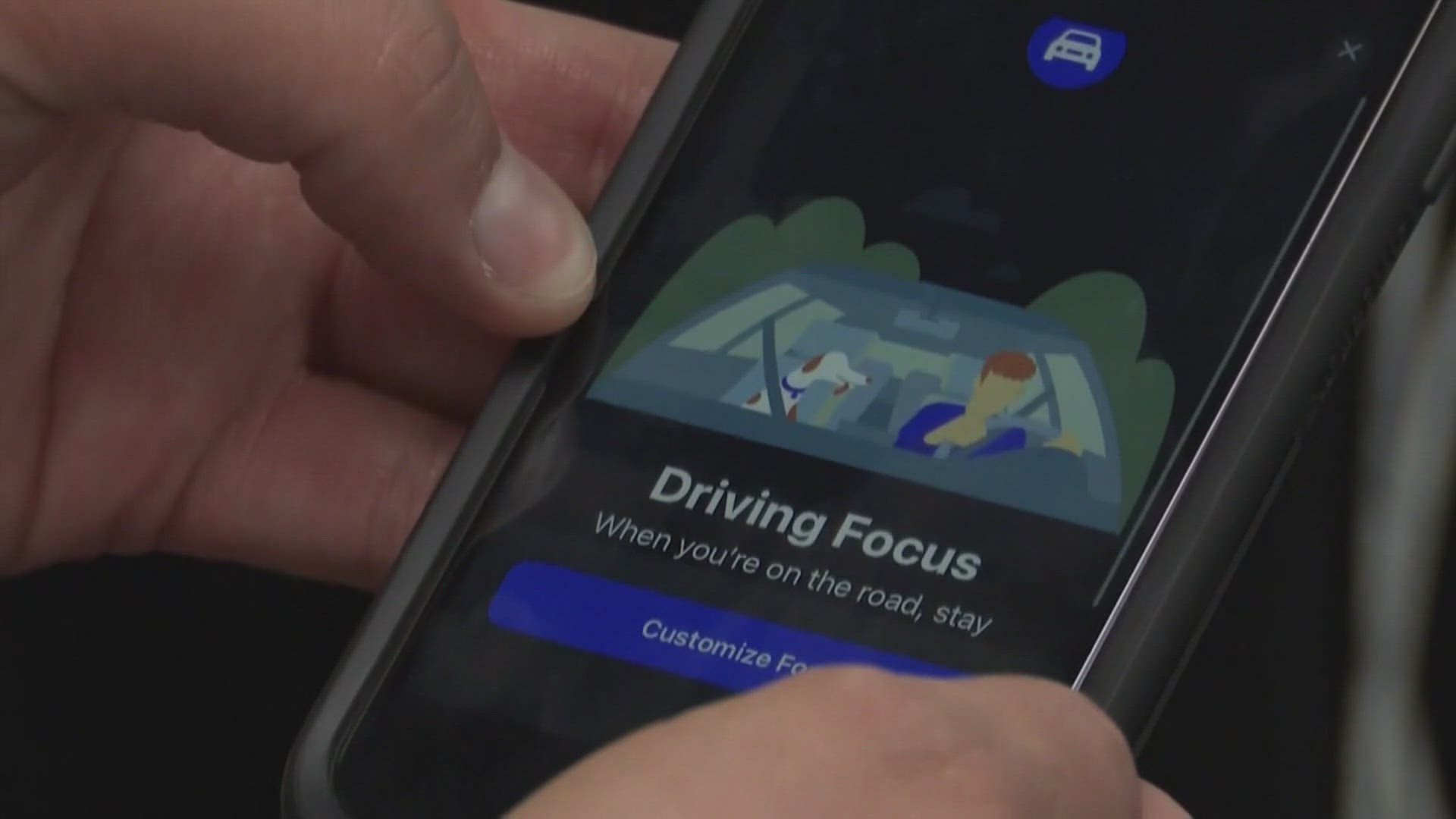COLUMBUS, Ohio — Beginning Thursday, Ohio drivers can be immediately pulled over and issued a fine starting at $150 for driving while distracted by an electronic device.
Distractions take your attention away from driving and can increase your risk of crashing.
Preliminary data from the Ohio State Highway Patrol shows distracted driving crashes hit a record six-year low in September 2023 when compared to each month dating back to at least January 2018. There were 1,383 related crashes in May 2018. In September 2023, there were 576 crashes.
Experts say small adjustments to your daily routine can further reduce that number.
"Driving is a complicated procedure with lots of things going on all at the same time and you really need to take the time to focus on that," said David Berk, owner of Faith Driving School.
Berk said he teaches his students to make preparations before they start the car.
"Set your music selections before you head out of the parking lot. Hit your GPS and that way your phone is down, everything is connected. Take the time to set up your Bluetooth to your controls on your car and that way you don't have to hold the phone," he said.
Under Ohio's new law, drivers who are 18 and older can make or receive calls via hands-free devices, including:
- Speakerphone
- Earpiece
- Wireless headset
- Electronic watch
- Connecting phone to vehicle
Anything that involves using, holding, or supporting a device while driving is off-limits.
Exceptions include:
- Drivers reporting an emergency to law enforcement, a hospital, health care provider, fire department, or similar emergency entity.
- Drivers holding a phone to their ear only during phone conversations, if the call is started or stopped with a single touch or swipe.
- Drivers holding or using cell phones and other electronic devices while stopped at a traffic light or parked on a road or highway during an emergency or road closure.
- First responders (law enforcement, fire, EMS), using electronic devices as part of their official duties.
- Utility workers operating utility vehicles in certain emergency or outage situations.
- Licensed operators using an amateur radio.
- Commercial truck drivers using a mobile data terminal.
"If your phone is not hooked up to a Bluetooth or something like that or using your GPS, just turn it off," Berk said.

